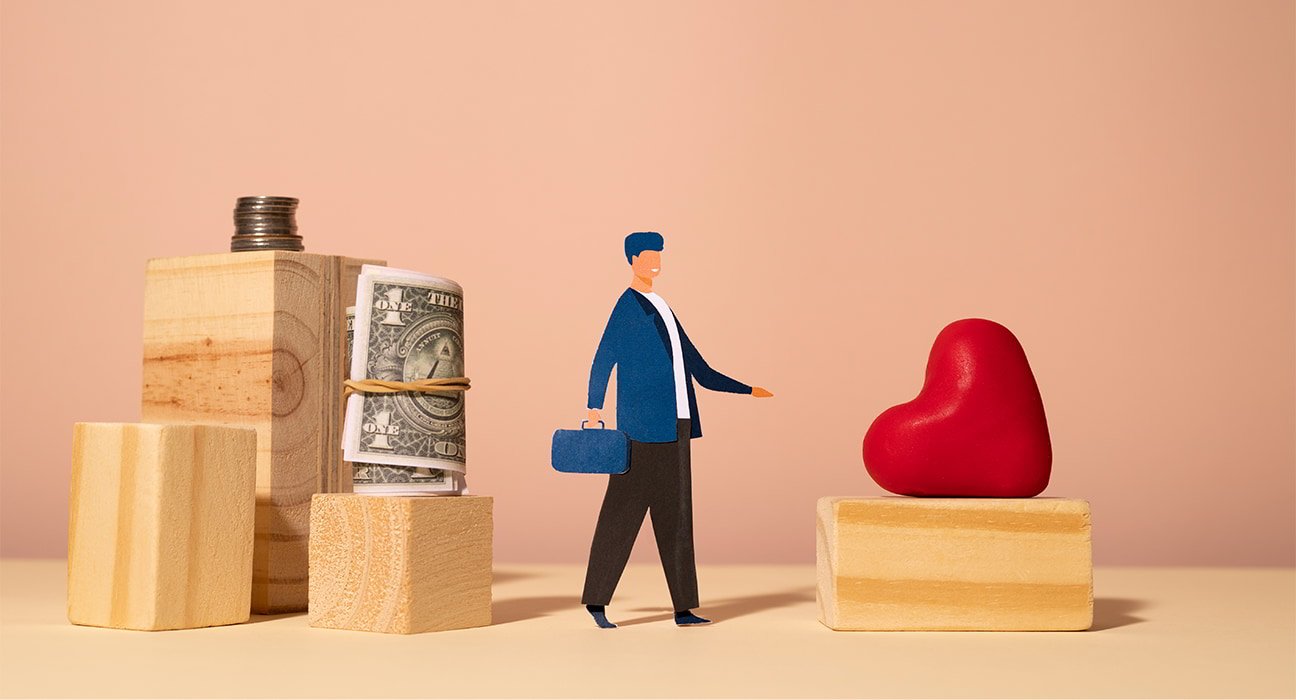Materialism, the reality of contemporary society. No matter how much one tries to deny it, we are all engulfed in the love of material possessions. Well, there is nothing particularly wrong with it, we can even call it a necessity in today’s time. But when does it start to affect the satisfaction and peace in our lives, and hamper our relationships? Where do we draw the line and mark it as unhealthy? Let’s try to find out.
What Exactly is Materialism?
A fixation with material goods and belongings from this world is called materialism. It involves paying less focus on the abstract things. It is based on a theory in philosophy that physical matter is the only reality and all other things are born from the interactions of this matter. Materialism in the practical sense is the belief that money and all the glitters that we can buy from it are the most, or for some, only important thing in the whole wide world.
Today’s society is constantly changing. In this fast-paced scenario, materialism seems to be the expected dominating truth of the people. A materialistic lifestyle gives the impression of being a reasonable roadway to happiness. But what most of us fail to understand is that it also has the potential to become a source of complicated existential problems.
The Illusion of Happiness
Materialism can cause discontent in individuals due to the illusion of happiness it generates. People tend to think that with increased material possessions they will be happy, but research has shown this not to be true. Once the materialistic expectations have been attained, people return to their set-point of happiness. It is what is commonly referred to as a hedonic treadmill, whereby people always seek more so that their current levels of satisfaction can be maintained.
So, we might think that we are happy until we are back to square one and hungry for more. The catch is that this hunger never dies. Materialism tricks us by providing short-term happiness and tying us into this vicious cycle where we are never able to reach the mirage it creates.
Materialism and The Decline of Relationships
It is commonly known and widely experienced that our state of well-being and mental health impacts the state of our relationships and the kind of people we are attracted to. This is where materialism comes in. It distorts our worldview and can make us a self-centred individual. We continue to concentrate on what “I” own and increasing “my” possessions. This naturally makes us shift our attention from our relationships. One is unable to devote enough time or love that our loved ones deserve. The relationships set on a selfish structure can result in neglect and dissatisfaction.
We cannot hope to nurture intimacy and friendships when our minds are filled with possessions, consumer culture, and the creation of wealth. Instead, we spend time and energy not on building healthy relationships but rather on building our wealth and status. Long-lasting bonds and eternal connections are not something that simply happens. They require work from all sides. Healthy involvement and connection, as well as quality time spent together, are the foundation of successful partnerships.
Intrinsic Values
Giving more emphasis on intrinsic values rather than material possessions is necessary to increase life satisfaction and healthier relationships. These intrinsic values may include love, connection, purpose, and personal growth. Long-lasting happiness and a feeling of internal satisfaction can never be achieved by extrinsic rewards. Money is said to buy happiness, and perhaps it does.
You are capable of buying anything that gives you joy, but the question remains the same, how long will that feeling stay? Earning money is what our capitalist society requires from us, but to depend on only materialism as our fundamental source of happiness is the destruction of inner peace. A sense of purpose, the comfort of friendships, the touch of a loved one, a room full of laughs and the taste of food prepared by our mothers, cannot be attained by the materials we desire.
Creating a Worthwhile Life
Following are some suggestions for creating a more meaningful and satisfying life:
- Practice Gratitude: Relish in what you do have instead of bemoaning what you don’t have; that way you can appreciate the good things in your life.
- Limit Materialistic Exposure: Limit your exposure to media and advertising that spur desires for the latest, greatest things.
- Spend time with loved ones: By investing your time in your loved ones, you will have more family and friends to lean on.
- Pursue Meaningful Activities: Do things that are enjoyable, such as hobbies, volunteering, or learning new skills.
- Emphasize Experiences: Make investments in experiences as opposed to material goods.
You can build on moving your focus away from materialism and back to intrinsic values so that your life may be more rewarding, fuller with relationships, and more joyful Recall that there is a personal element to the path to a happy life. Try various routes, and test which works best for you. In fact, by acting in ways that emphasize intrinsic values, you will be able to develop a more meaningful, satisfying, and enjoyable life.
References +
Smart, J. J. C. (2024, August 29). Materialism | Definition, Theories, History, & Facts. Encyclopedia Britannica. https://www.britannica.com/topic/materialism-philosophy
Mfa, R. J. S. (2020, October 2). What to know about the Hedonic Treadmill and your happiness. Healthline. https://www.healthline.com/health/hedonic-treadmill
https://www.koraru.co/blogs/guides/materialism-and relationships?srsltid=AfmBOorU55A2PulXbv9MrXkd 0ij70BwnyExcQ_1k1jhxByIY8c3zTkc













Leave feedback about this